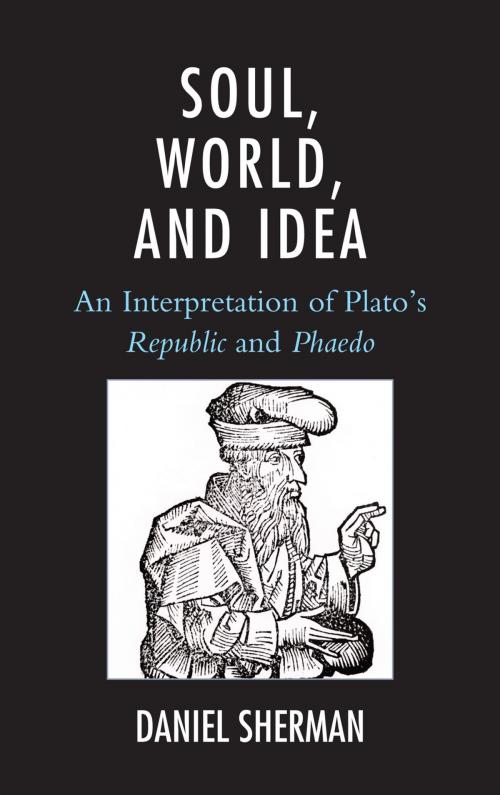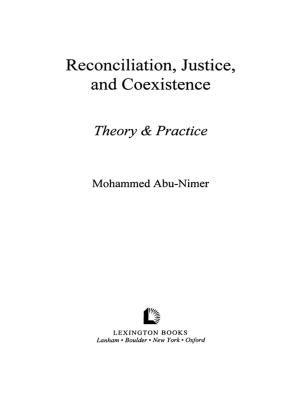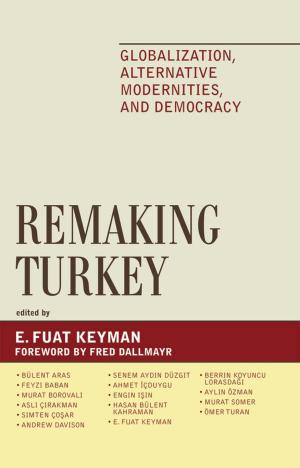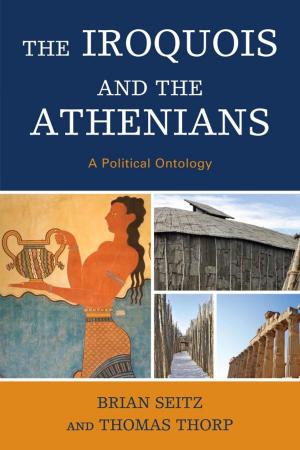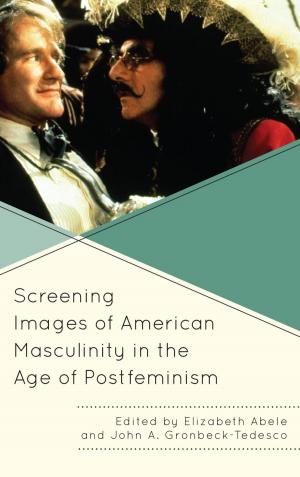Soul, World, and Idea
An Interpretation of Plato's "Republic" and "Phaedo"
Nonfiction, Religion & Spirituality, Philosophy, Metaphysics, Ancient, Mind & Body| Author: | Daniel Sherman | ISBN: | 9780739172339 |
| Publisher: | Lexington Books | Publication: | October 3, 2013 |
| Imprint: | Lexington Books | Language: | English |
| Author: | Daniel Sherman |
| ISBN: | 9780739172339 |
| Publisher: | Lexington Books |
| Publication: | October 3, 2013 |
| Imprint: | Lexington Books |
| Language: | English |
In its examination of two of Plato's key works, Soul, World, and Idea: An Interpretation of Plato's Republic and Phaedo reveals the key role that images and our capacity for image-making play in the relationship among soul, world, and Idea. This bookbegins and ends with a reading of the Republic. Daniel Sherman turns midway to the Phaedo to further analyze the nature of the soul and its relation to the nature of the Ideas, then returns to apply the conclusions to the rest of the Republic. Sherman's focus is on the ontological and epistemological argument, including attention to the dramatic detail. He argues that the ontology of the Ideas in the Republic and the Phaedo is inseparable from the ontology of human being, that is, from the structure and life of the soul. On this interpretation, the Ideas are seen as indeed objective but as in a sense also a product of a permanent dialectical relationship. The Ideas, though something more than concepts, do not have any real independent existence outside of this human dialectical triad of world, soul and Idea. The stability of the Ideas need not be grounded in a static otherworldliness, and the condition of meaning is not temporally prior to human existence in general. The result is a new interpretation concerning the realm of the Ideas, the immortality of the soul, and the lived in world of their interaction in the production of interpretive images.
Sherman argues that the platonic soul is immortaland the Ideas eternal wholly and solely in human (dialogical) activity--the rest is *muthologia--*and that the world of our experience is a product of an ongoing act of interpretation or dianoetic dialegesthai. This reinterpretation of the platonic Ideas will be especially interesting to students and scholars of classics, ancient philosophy, and continental philosophy.
In its examination of two of Plato's key works, Soul, World, and Idea: An Interpretation of Plato's Republic and Phaedo reveals the key role that images and our capacity for image-making play in the relationship among soul, world, and Idea. This bookbegins and ends with a reading of the Republic. Daniel Sherman turns midway to the Phaedo to further analyze the nature of the soul and its relation to the nature of the Ideas, then returns to apply the conclusions to the rest of the Republic. Sherman's focus is on the ontological and epistemological argument, including attention to the dramatic detail. He argues that the ontology of the Ideas in the Republic and the Phaedo is inseparable from the ontology of human being, that is, from the structure and life of the soul. On this interpretation, the Ideas are seen as indeed objective but as in a sense also a product of a permanent dialectical relationship. The Ideas, though something more than concepts, do not have any real independent existence outside of this human dialectical triad of world, soul and Idea. The stability of the Ideas need not be grounded in a static otherworldliness, and the condition of meaning is not temporally prior to human existence in general. The result is a new interpretation concerning the realm of the Ideas, the immortality of the soul, and the lived in world of their interaction in the production of interpretive images.
Sherman argues that the platonic soul is immortaland the Ideas eternal wholly and solely in human (dialogical) activity--the rest is *muthologia--*and that the world of our experience is a product of an ongoing act of interpretation or dianoetic dialegesthai. This reinterpretation of the platonic Ideas will be especially interesting to students and scholars of classics, ancient philosophy, and continental philosophy.
